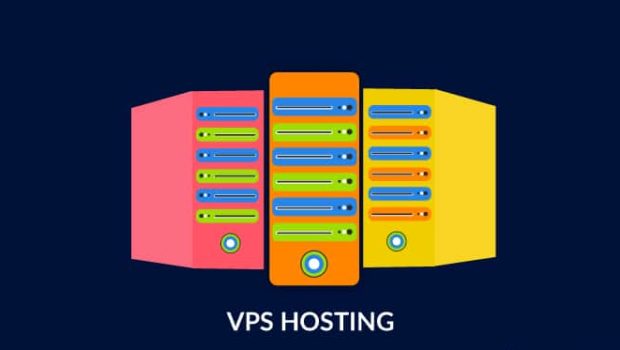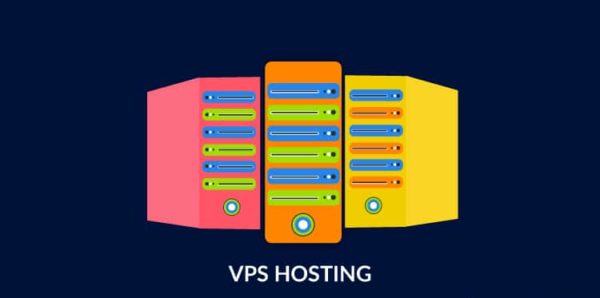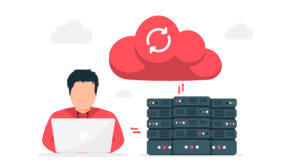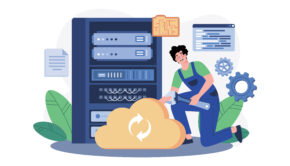5 Major Differences Of VPS Hosting Environments
A virtual private server is one of the many hosting options available to website owners. Known for short as a VPS, these servers are virtually provisioned. You can buy space on these servers for your website. However, most website owners don’t understand what makes a VPS different from other hosting packages like a shared, cloud or dedicated packages. Even if you determine that it is now time to move to a VPS, you might not be prepared for all the added responsibility that comes with a VPS. In this post, we’ll share some of the major differences that comes with a VPS hosting environment.
Semi Dedicated Resources
To start, VPS accounts offer semi-dedicated resources. Unlike a shared hosting environment, you have a dedicated amount of resources for your website. Although your website is limited to a pre-determined amount of server resources, it is much more than you would normally get with a shared hosting account. Meanwhile, a VPS still has other users on the same server which keeps the costs much lower than dedicated hosting packages. If you would like the added performance of additional resources without the costs of renting an entire dedicated server, the semi-dedicated VPS hosting solution could be the perfect match.
Choice Of Operating System
You have an important choice to make with a VPS, windows or linux operating systems. In a VPS environment, they operating system can make a huge difference because you will have more administrative responsibilities to setup and maintain the server. Compared to shared hosting accounts, you may not have cared what type of OS was running as long as the control panel worked for you. Instead, you have to think about what type of operating system to choose for your VPS. You can run anything from Windows Server 2012 to 2016 or Linux distributions like Debian, Centos and Ubuntu. While there is much debate about the best VPS OS distro, these are all important decisions to make depending on the configurations and requirements of your website.
Keeping Software Updated Yourself
Another major difference, VPS hosting packages require you to update the software. Which means, if you choose a linux distribution like Ubuntu, then you will need to keep it updated yourself. Unless you choose to get a managed VPS solution, you are responsible for maintaining backend updates and software. This includes updating system tools like MySQL, PHP and other open source tools. For those of you who have some experience with linux, these updates shouldn’t take long. If you are still wondering what is VPS and how it works, the additional responsibility could lead to security risks or missed updates. Surely, it can be a big change from having someone else manage the entire server software for you.
Install Custom Applications And Configurations
Since you have full control over your VPS, you can install custom applications and software as needed. While many shared hosting accounts limit installations, you have complete freedom to install scripts that you would like to use. As long as the use is allowed in the terms of service, you can tweak server settings to meet the demands of your custom programs similar to dedicated servers. You are free to develop new applications, custom scripts and more. Naturally, the increased control and freedom is very different from the constrained environment of a shared hosting account.
Introduce Server Level Caching For Performance
Additionally, VPS servers give you the option to introduce server level caching. Usually, website owners use page caching to speed up their websites. As you gain more traffic, this might not be enough. A VPS hosting environment would allow you to install one of the various caching software available to speed up your website. This allows you to keep your website loading much faster, especially during times of high traffic volumes. If you would like to implement server side caching, a VPS account could be a great solution for the additional performance boost.
Compared to shared hosting and other environments, VPS packages offer a unique mix of performance, customization and responsibilities. You have access to more resources with a semi-dedicated environment. But, you also have to manage the setup, including the choice of operating system and keeping the server software up to date. With the additional responsibility, you get the freedom to install custom scripts and applications. Unlike a shared hosting environment, you can install caching software to further enhance the performance of your website. These are major differences that you can take advantage of with a VPS solution.









![Movies vs Games [Infographic]](https://technofaq.org/wp-content/uploads/2016/09/movies_vs_games-150x150.jpg)







